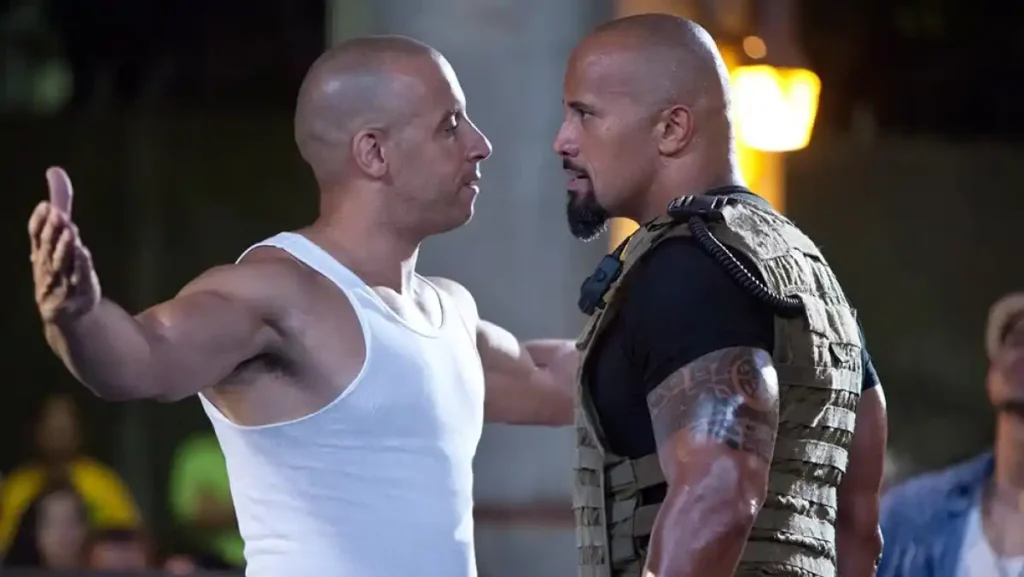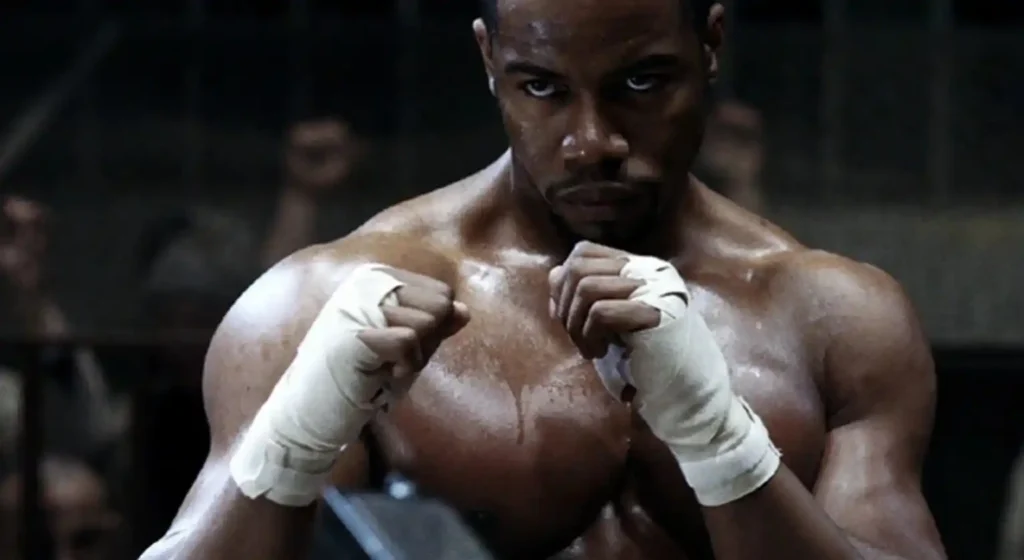
, the first of his movies to really remind me that he’s pushing 60 years of age. The problem is that I can’t imagine White doing anything else. He’s a product of the best kind of typecasting, an actor who is extremely familiar and comfortable with his appeal, whose only intention seems to be giving audiences as many comfortingly familiar experiences as possible. I find myself wondering what happens when he can’t provide those experiences any more.
Don’t get me wrong, Michael Jai White at 57 – with, I’m sure, the aid of some supplements – is in better shape than most people ever reach in their primes. He’s also a legitimate martial artist, respected even among professional fighting circles as the real deal. White, even having lost a step, is still a more convincing physical performer than most big-name actors who take a stunt double on the road with them. But he does seem to have lost a step all the same.
Typecasting is generally seen as a bad thing. And in some instances it is. It’d be hard to argue that someone like, say, Margot Robbie wouldn’t have been utterly wasted on the “implausibly hot love interest” archetype that made her famous in The Wolf of Wall Street. She was destined for different things, and her body of work since then, including Academy Award-nominated turns in I, Tonya and Bombshell, and collaborations with auteur directors like Damien Chazelle in Babylon, Wes Anderson in Asteroid City, and Greta Gerwig in Barbie (the latter being one of a handful of interesting producer credits, the others including Promising Young Woman and Saltburn), has proved that she was never going to fit into a single box. But some actors do. And some actors like it there.
Scott Adkins is like this. I reviewed his Diablo recently and judged it entirely on its merits as a Scott Adkins movie. A sliding scale exists for actors who only generally make one type of movie. There’s something comforting about it. You know to manage your expectations. You can see a certain name on a movie’s billing and know immediately what type of movie it’ll be. In this media climate, with so many movies airing on so many platforms, there’s tremendous value in being able to know at a glance whether you’ll be into something.

Jason Statham, one of the most famously typecast actors in the world, has spoken about this. He doesn’t consider himself much of an actor at all in the traditional Thespian sense. He isn’t interested in – or capable of – trying to “chameleon himself into different roles”. He plays the no-nonsense tough guy who beats people up. And why wouldn’t he? He looks the part, he’s convincing in it, and he’s really good at it. I don’t want to see Jason Statham in a romantic comedy. I wouldn’t imagine anybody does. You’ve got Hugh Grant for that.

Vin Diesel and Dwayne “The Rock” Johnson in Fast Five
Typecasting can lead to problems, granted. Comedian Pete Davidson, for instance, can only play comedian Pete Davidson, so when he was cast opposite Eddie Murphy in Prime Video’s woeful action-comedy The Pickup, it was Murphy, one of our great comedic talents, who had to play the straight man. That’s somewhat less than ideal, but it’s also pretty rare. Usually, actors being typecast is an outgrowth of their specific talents and unique appeal, and those things allow filmmakers to make – and more importantly sell – very particular movies around them. Entertainment is a business, at the end of the day, and known quantities are attractive because they’re easy to market.
And sometimes the actor known for playing specific roles develops a reputation because they’re really good at playing those specific roles. Is there a better, more consistent romantic lead in a period drama than Keira Knightley? Can anyone almost kill themselves on the set of a tentpole summer blockbuster more reliably than Tom Cruise? Is anybody more socially awkward than Michael Cera, more comically verbose than Ryan Reynolds, or more inoffensively anodyne than Chris Pratt?
In 2015, on Disney’s now-defunct Grantland website, Shea Serrano made a character matrix that examined every role Vin Diesel had played across the previous 18 years and plotted them across four quadrants of coolness, uncoolness, loyalty, and treacherousness. The joke was that every single character – with the exception of one – ended up bunched up in the same corner, with maximal coolness and loyalty. He never plays anything else. Serrano summed it up this way:
It’s impressive. I imagine someone will use it as evidence that Diesel isn’t that great of an actor, and maybe he isn’t, but he is a super-clutch movie star, and sometimes that’s way more meaningful.
I agree. The reason I started thinking about all this in the first place is that I was worrying what might happen when Michael Jai White gets too old to make Michael Jai White movies, and the only conclusion that I kept arriving at was that we would simply not get Michael Jai White movies anymore because nobody else can make them as well as he can. And that seems like a shame to me. It also seems like a pretty good argument in favour of typecasting. There are lots of great actors. But if you’re so good at playing a particular type of role that you become exclusively associated with it, you become pretty irreplaceable. And that’s a cool legacy as far as I’m concerned.


